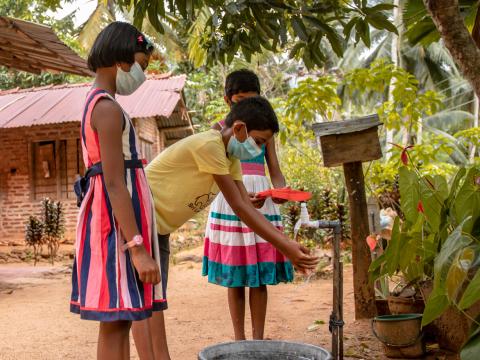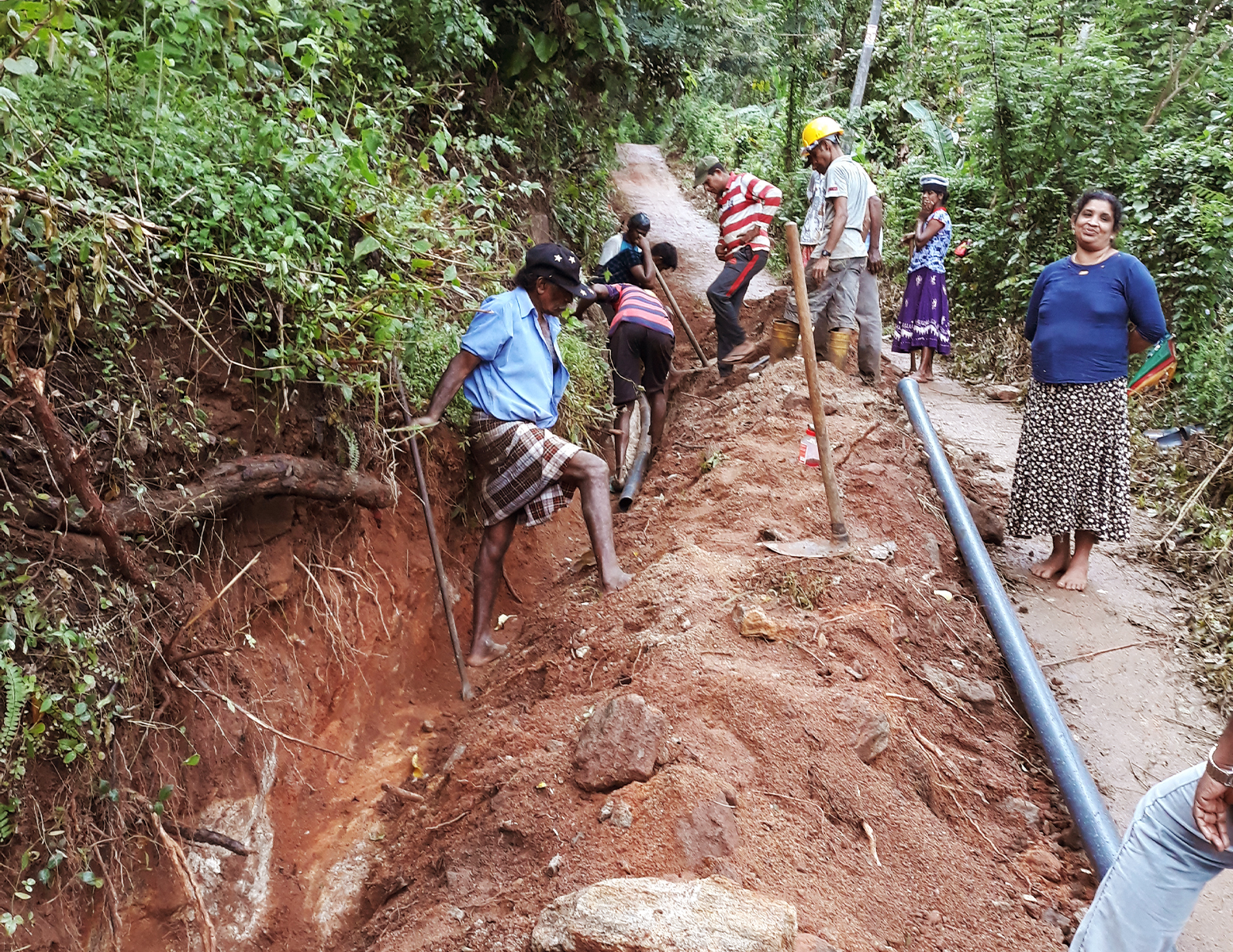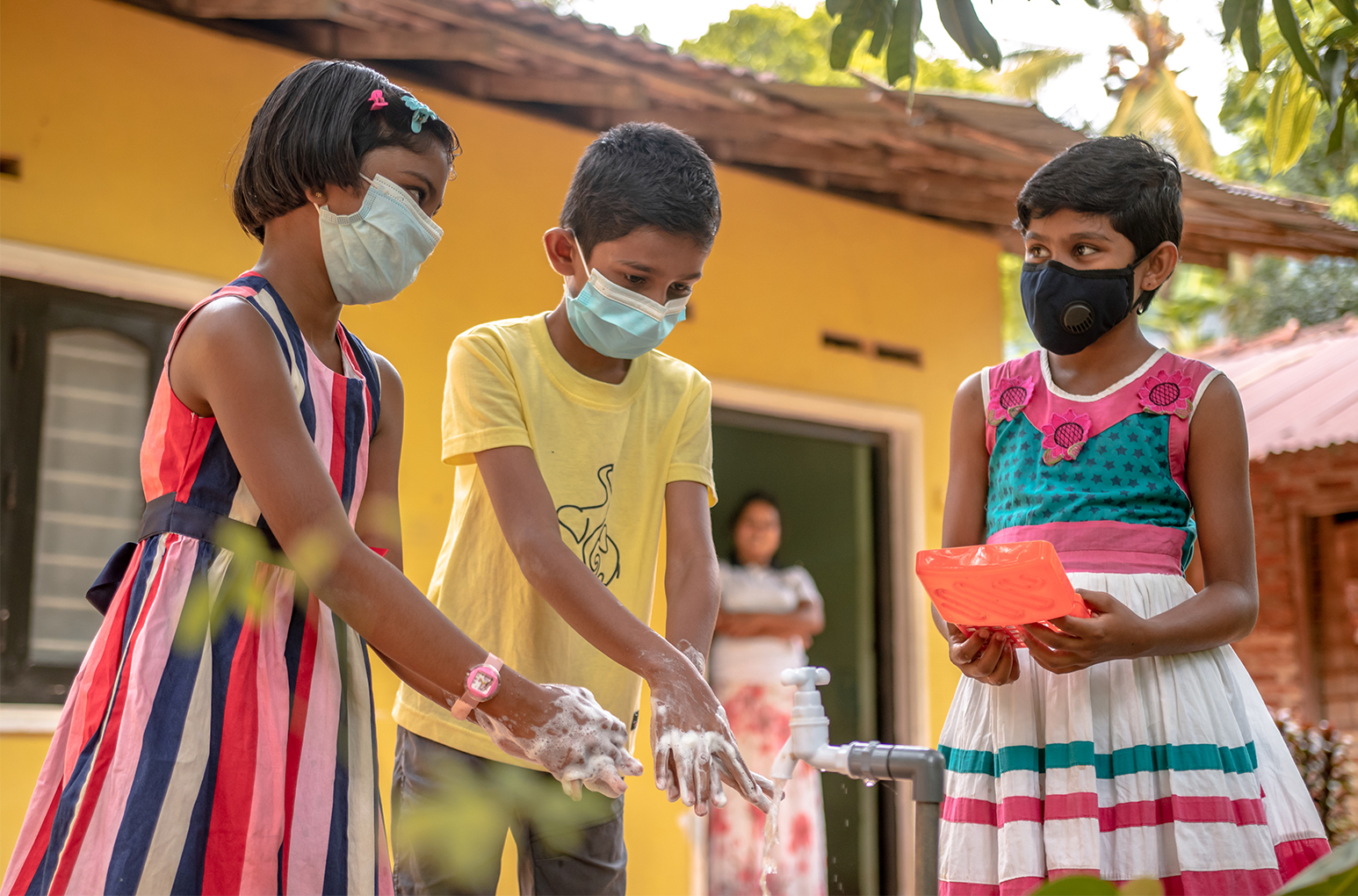Bringing water to Kotehena community

It took 45 minutes to journey down the mountain and two hours to climb up with water. This was the life of most families in the Kotuhena Community. Their daily routine was around fetching water.
"By the time the school is over, and children are returning home, I carry a change of clothes for them and meet them near the river at the bottom of the mountain," says Priyani, a mother of four children – ages 15, 13, 10 and 8.
"We take a bath, do laundry and fetch the water for the night and next morning," she says, "By the time we climb back home again, we are soaked in sweat. That was the life."
Priyani carried two 40-litre cans tied to the two ends of a carrying pole, and her children carried cans they could. They had to take breaks while climbing up. Sometimes if a child had after school classes, she would bring the cans and go down to hold a second round with her child. It was always good to have a little extra water.
"In the morning, the children had to manage with just washing their faces and getting ready for school," says Priyani, "There was never enough water for them to have a body wash."
Priyani would make another round in the morning alone. Sometimes her father would come halfway to help her carry the cans. Her parents, now old, also lived with her. Her husband worked out of town. World Vision initiated a water project for the Kotuhena community benefitting over 150 families. World Vision contributed LKR 10.34 million while the government contribution amounted to LKR 3.5 million. The community contribution – both monetary and labour came up to LKR 3.1 million.
"Each of us worked 18 full days for the project," says Malani, who was among those who contributed in labour, "On one such day, while we were digging up the mountain to lay the pipelines, the workers ran out of drinking water. One of the older women in a nearby house volunteered to fetch a pot of water for us. I remember watching her from the top of the mountain. She stopped several times on her way back to rest. These areas don't have roads, and we travel on footpaths we've paved. When she finally reached, I felt the water was too precious for me to drink." The project was nearing completion when the country declared an island-wide lockdown due to the pandemic situation.

"We were at the last phase of the water project, the pipes were being laid, but we were asked to leave everything and go home," says Malani, who was working with others in laying pipes at that time, "And for the next few months we couldn't work on the water project due to restrictions."
With the work on the water project paused, The Kotuhena community patiently returned to their usual way of fetching water from the bottom of the mountain. When the curfew lifted, the work on the water project commenced immediately to see its completion.
Today the community has water right into their houses. "We can never thank enough for this, "Priyani says, "I can't imagine that accessing water can be this easy. Every drop of this Project is so very precious."
